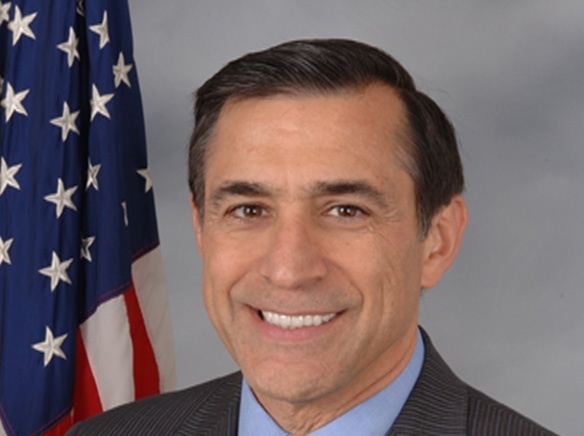San Diego County District 2 Supervisor Joel Anderson said a Jan. 12 proposal he made during a Board of Supervisors meeting about amendments to pandemic-related business closure ordinances had three points he wanted to clarify.
He said the county of San Diego should provide scientific data showing any activity is a health risk before it is limited or restricted; that policy enforcement should be applied consistently and fairly; that the county should publish criteria used for enforcement on the public website before moving forward with that enforcement.
His fellow board members agreed with the spirit of suggestion the Board of Supervisors did not word-for-word approve Anderson’s points, they did approve having enforcement criteria publicly released and maintained scientific data should be the guiding principle for business operations; enforcement actions against residents and businesses deemed in violation of COVID-19 will be based on readily available scientific evidence.
That distinction— basing law enforcement on scientific evidence— is important, Anderson said.
“I’m advocating people follow the law but when you read the science, you can judge for yourself if it is political science or medical science,” Anderson said.
To his first point— that the county should provide scientific data showing any activity is a health risk before it is limited or restricted—Anderson brought up a Dec. 8 California Health and Human Services press conference.
Department Secretary Mark Ghaly said at that conference the decision to limiting outdoor dining, turning to restaurants to deliver and provide takeout options instead, “really has to do with the goal of trying to keep people at home”.
Anderson said the goal of keeping people at home has more to do with policy than science, and pushed to have the science behind COVID-related policies made more public.
Secondly, Anderson said policy enforcement should be applied consistently and fairly because having businesses held to different standards— standards he maintains are not based in medical science— results in unfair enforcement of measures intended to keep the public safe.
As an example, he compared seating at restaurants with seating on public transportation. Under current directives, restaurant owners are barred from seating patrons inside, ostensibly so strangers from different households do not come in contact with each other in a closed setting.
However, Anderson said the same patrons who are not allowed to sit near each other in a sanitized eating area are theoretically able to ride the trolley alongside each other without any sanitizing after one person leaves a seat and another takes their place.
That practice, Anderson suggested, amounts to placing extra restrictions on one type of business over another despite the same purported goal: in this case, to keep strangers from coming in contact with each other.
Finally, Anderson said the county should publish criteria used for enforcement on the public website before moving forward with that enforcement.
District 1 Supervisor Nora Vargas said she supported Anderson’s amendments.
“For too long we’ve politicized COVID. I supported the amendment made by Supervisor Anderson as I am committed to making decisions based on science and data,” Vargas said.
In a Jan. 20 statement, Board Chair and District 4 Supervisor Nathan Fletcher said from the start of this pandemic, the county of San Diego has based its public health decisions on the science around the spread of COVID-19 and the advice of medical professionals.
“I appreciate Supervisor Anderson’s interest in wanting to follow the science when it comes to tackling COVID-19 and thanks to his amendment last week all of the science is now transparently shared on our county website,” Fletcher said .
Current enforcement criteria is now posted within the Coronavirus Disease 2019 page on the San Diego county public website.
At that same Jan. 12 meeting, the Board of Supervisors also passed a policy to increase the County of San Diego’s enforcement on entities that are not complying with the COVID-19 public health orders.
“We are increasing resources and reaffirming our commitment to slowing the spread of COVID-19 in San Diego County by expanding the scope and commitment of enforcement by our county’s compliance team,” Fletcher said.
Businesses not in compliance with public health orders will not be eligible to receive county relief funding.
Anderson said he is “trying to get life back to normal and this first step is to gather information” before considering what might come next.














